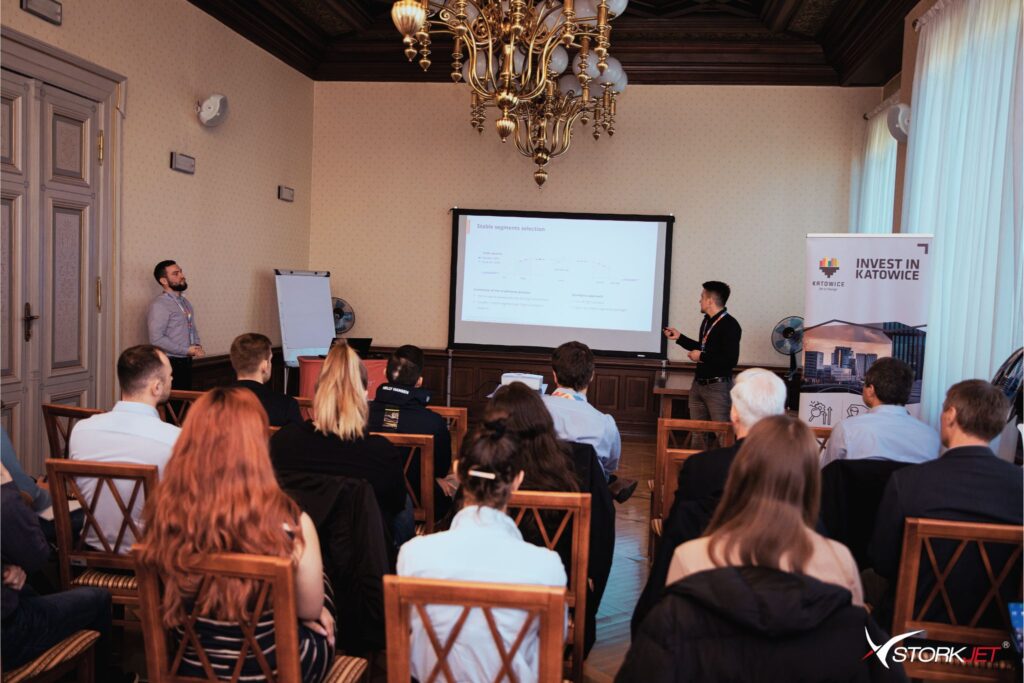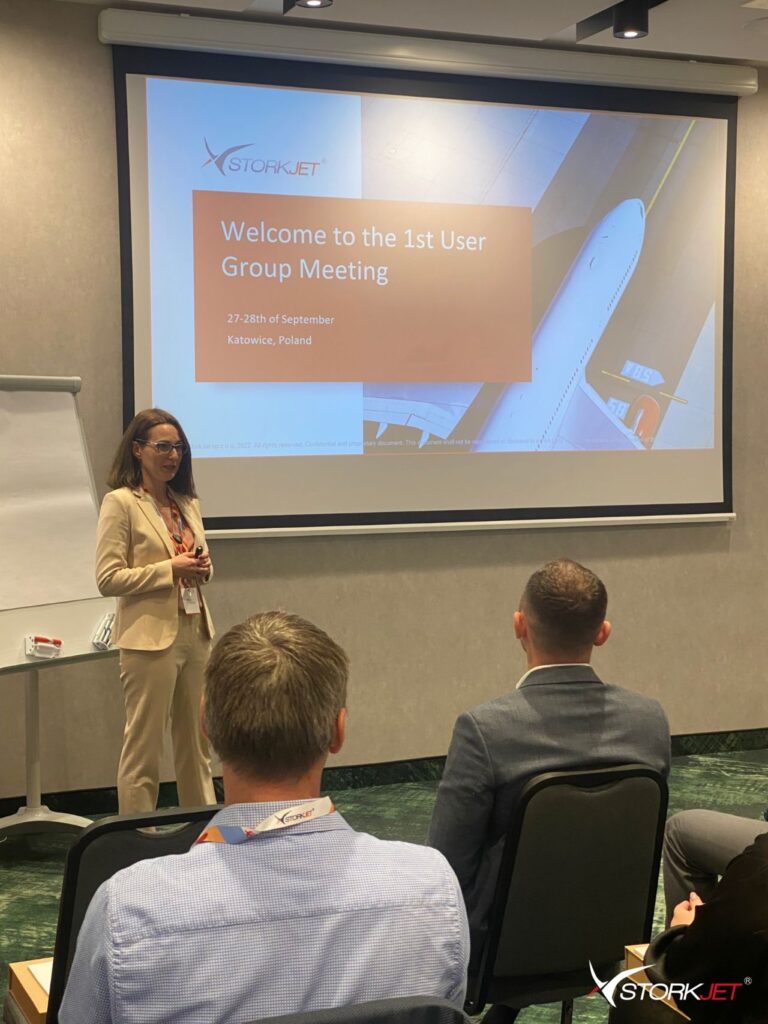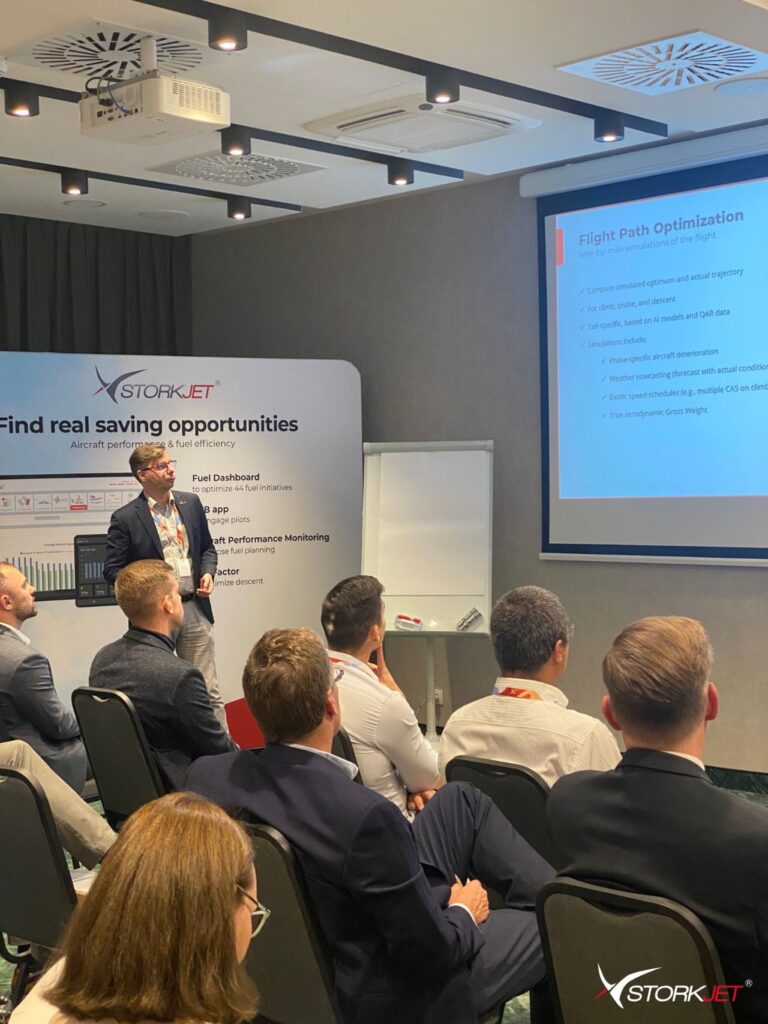The first StorkJet User Group Meeting is right behind us!
Those were two inspiring days of presentations, workshops, and great talks between the airlines we work with. We would like to thank all the participants for their very positive feedback on the event. It was an honor that you visited us, shared knowledge, and asked a lot of engaging and thought-provoking questions! We are thrilled about that cause creating such an expert community in the area of Aircraft Performance and Fuel Efficiency is a vital development factor for our company.





At the event, we covered dozens of crucial topics in fuel efficiency and aircraft performance monitoring during the lectures and expert discussion panels. We have been talking about aspects such as:
- What’s new in FuelPro, FlyGuide, and APM?
- Why do tail-specific performance models matter?
- How do what-if simulations of flight operations work? Examples for SE taxi.
- Performance-based planning: taking advantage of FuelPro & APM in light of new EASA regulations.
- Future development plans.
If you are interested in any of these topics or any other case in the field of fuel efficiency or Aircraft Performance Monitoring, and you would like to learn more write to Piotr Niedziela on LN, or via e-mail: [email protected]
Once again, we would like to thank all guests for participating in our event.
See you in a year!
StorkJet team
